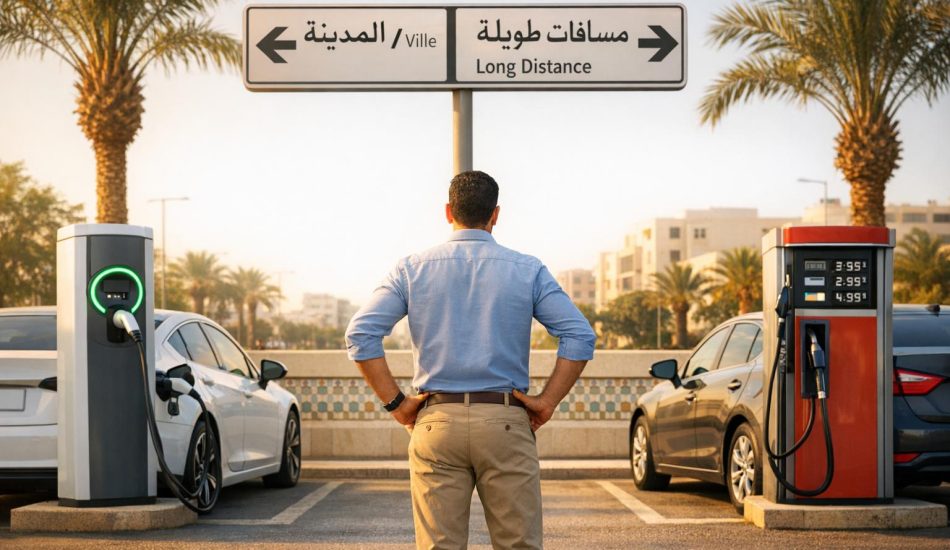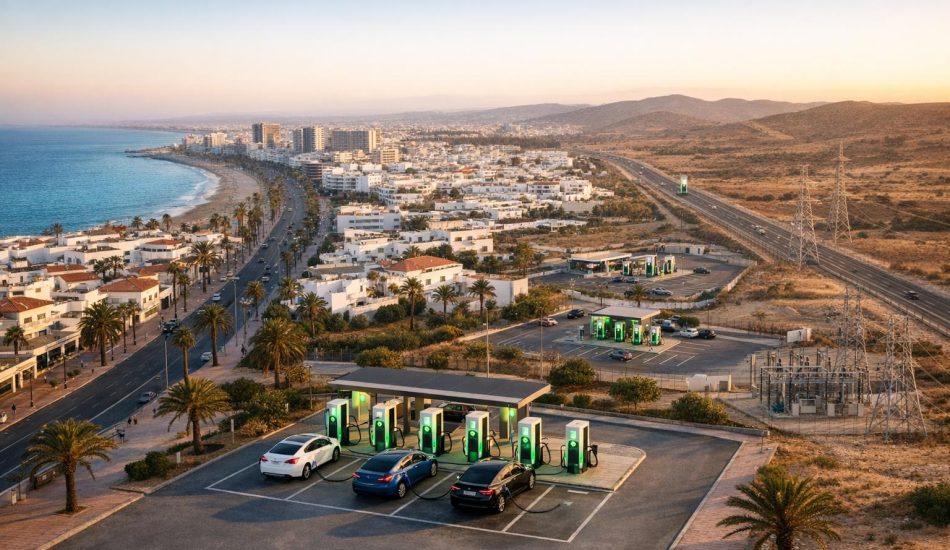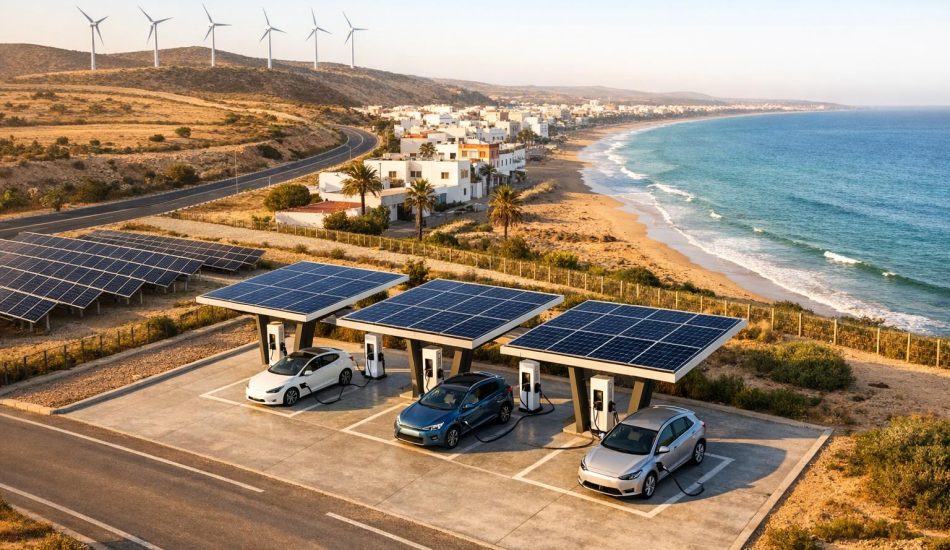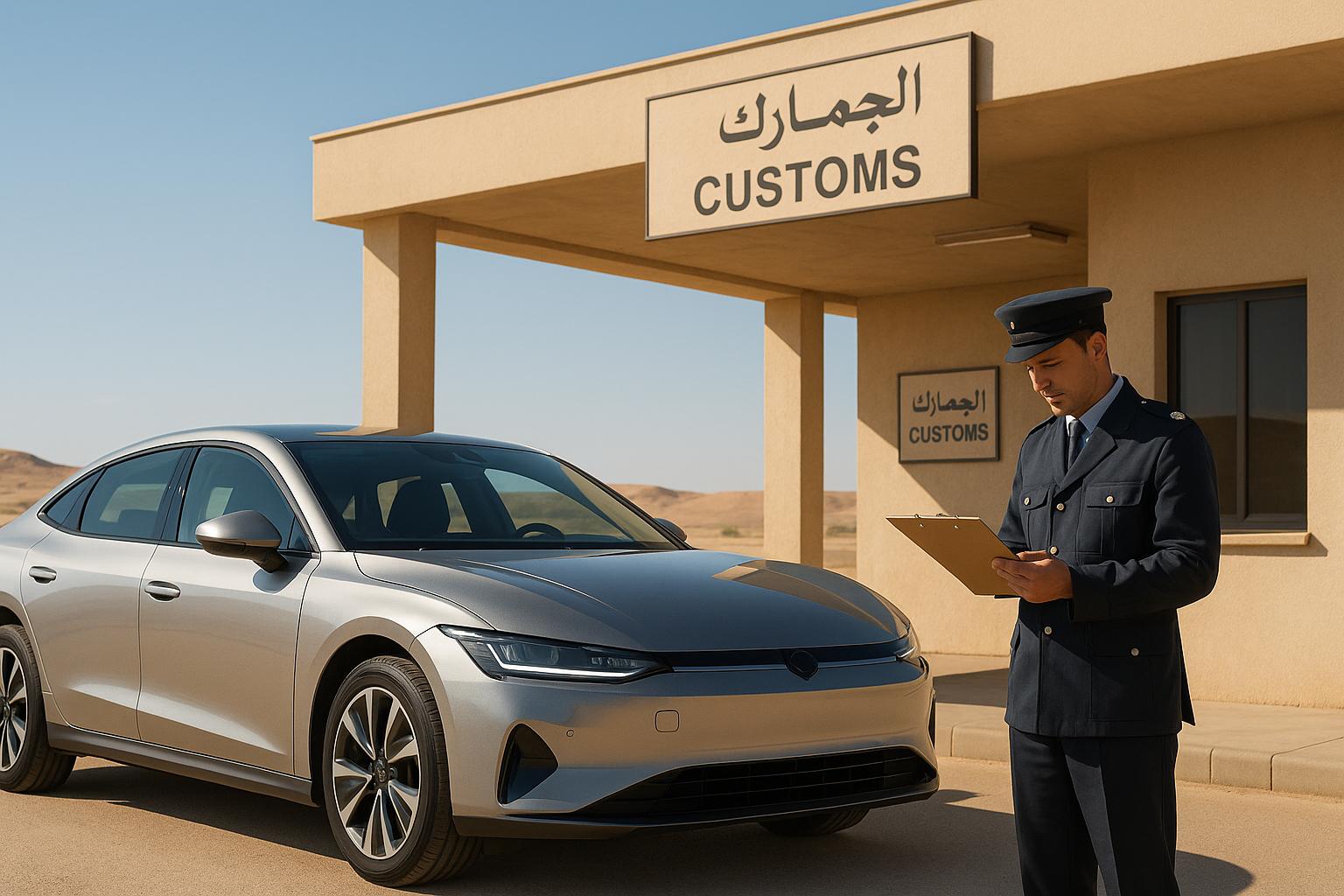
Libya has introduced updated 2025 guidelines for importing electric vehicles (EVs), offering 100% VAT and customs duty exemptions for fully electric cars. Hybrid and gasoline vehicles face reduced or standard import duties. Key requirements include compliance with EU Euro 4 emission standards, a 10-year vehicle age limit, and mandatory registration with the Advance Cargo Information (ACI) system. Importers must secure permits, prepare specific documents, and meet battery safety protocols. U.S.-Libya trade tariffs starting in 2025 may increase costs. Platforms like EV24.africa simplify the process, handling logistics, customs, and compliance.
Key Points:
- Exemptions: Fully electric vehicles are VAT and customs duty-free.
- Emission Standards: Euro 4 or higher required.
- Vehicle Age Limit: Maximum 10 years old.
- Documents Needed: Passport, bill of lading, insurance, and more.
- Battery Safety: Strict checks for lithium batteries.
- Trade Tariffs: U.S. imposes a 31% duty on Libyan imports; Libya plans reciprocal tariffs.
For hassle-free importing, platforms like EV24.africa manage the entire process, ensuring compliance with Libya’s 2025 regulations.
Libya’s 2025 EV Import Rules
Libya has established clear guidelines for importing electric vehicles (EVs), focusing on quality, emissions, and safety to modernize its vehicle fleet.
Vehicle Age Limits and Emission Standards
Libya enforces a strict rule: vehicles older than 10 years cannot be imported. This policy, introduced in 2022, aims to cut emissions and enhance road safety across the nation. Notably, in 2020, about 85% of vehicles on Libyan roads were secondhand, with 75% being over six years old. To encourage the adoption of newer vehicles, those manufactured within the last 5–10 years are favored, as they face fewer taxes and restrictions. Additionally, all imported vehicles must comply with EU Euro emission standards, specifically Euro 4 or higher. These standards align with regional goals to curb pollution and promote cleaner vehicle options.
| Import Requirement | Specification | Impact on EVs |
|---|---|---|
| Maximum Vehicle Age | 10 years from manufacturing date | Ensures access to modern EV technology |
| Emission Standard | EU Euro 4 and above | EVs inherently meet these standards |
| Preferred Age Range | 5–10 years old | Reduces taxes and simplifies approval |
While these standards focus on vehicle quality, trade policies also play a crucial role in shaping import dynamics.
Technology and Trade Policies
Trade regulations significantly influence the cost of importing EVs into Libya. Starting April 9, 2025, the U.S. Administration will impose a 31% duty on all imports from Libya. In response, Libya plans to introduce reciprocal tariffs of 30% on imports, effective August 1, 2025, after a brief delay. These measures will increase the overall expense of EV imports.
Libya’s economy, heavily reliant on imports, remains vulnerable to global market shifts, which adds to the financial strain. With ongoing fiscal and current account deficits, the government faces challenges in balancing economic stability with modernization efforts. Importers must also stay updated on any changes to trade policies or restrictions that could impact specific EV technologies or components.
How to Import EVs into Libya: Step-by-Step Process
Bringing an electric vehicle (EV) into Libya involves several crucial steps, from registration to customs clearance. Below, we’ll break down the process to help you navigate the requirements smoothly.
Registration and Import Permits
The first thing you need to do is register with Libya’s Advance Cargo Information (ACI) system, which became mandatory for all imports starting November 1, 2024. This electronic system requires you to submit shipment details before your cargo arrives at Libyan ports.
"This is a significant step towards improving trade facilitation and enhancing security. The ACI system will help us to better monitor incoming goods and ensure compliance with regulations." – A Customs Authority spokesperson
Once registered with the ACI system, you’ll need to secure an import permit from the Libyan Ministry of Economy. This permit is a formal authorization for your specific EV import and must be acquired well before shipping begins.
You’ll also need to prepare the required shipping documents (refer to the "Required Documents and Compliance Steps" section). Many importers choose to work with a freight forwarder familiar with Libyan regulations to avoid paperwork errors.
Shipping and Battery Safety Requirements
Shipping EVs comes with strict safety protocols, particularly concerning lithium batteries. These regulations, which became stricter on February 1, 2025, aim to ensure safe transport and prevent potential hazards.
Battery Safety Checks
Before shipping, the vehicle’s main lithium battery and underbody must show no signs of damage. Additionally, the battery must maintain a state of charge of at least 20% to ensure stability during transport.
Mandatory OBD testing verifies the battery’s condition before loading. This involves checking that the voltage difference between battery cells is under 100mV and that each cell operates within a range of 3.0V to 4.2V. These tests are critical for preventing malfunctions during the journey.
Documentation and Labels
To meet shipping standards, you must submit a "Letter of Guarantee" two working days before loading and provide a battery condition report at least three working days in advance. Additionally, the vehicle should display a safety label on the inside of the front windshield, positioned on the passenger side in the upper corner.
Once these steps are complete, you can proceed to prepare your EV for customs clearance.
Customs Notification and Required Papers
Clearing customs in Libya requires specific documentation, which varies depending on your residency status. Here’s what you’ll need:
- Copy of your passport
- Certificate of title and vehicle registration
- Original bill of lading from your shipping company
- Insurance policy
- Log book
Residency-Specific Requirements
- Returning Libyan citizens: Pay a 10% duty after customs valuation and provide a letter from the Libyan Consulate or an employment letter from your previous company.
- Tourists: Pay 25% of the vehicle’s value as a refundable deposit, which is returned upon leaving the country.
- Foreign residents: Submit a Statistics Code provided by your Libyan employer.
- Diplomats: Obtain a Diplomatic Franchise from the Ministry of Foreign Affairs.
During the customs declaration process, you’ll need to submit all required documents and pay any applicable duties and taxes. Processing can take time, so allow for delays and work closely with your supplier to ensure they understand the documentation requirements. This coordination helps streamline the process with shipping companies.
Compliance with Standards
To simplify customs clearance, certifications like ISO and CE can demonstrate that your EV meets international quality benchmarks. Keep all original documents organized and accessible, as customs officials may require additional verification during the inspection.
Required Documents and Compliance Steps
Navigating Libyan customs smoothly hinges on having the right paperwork in order. While digital systems make the process more efficient, accuracy in documentation is key to avoiding unnecessary setbacks.
Main Documents for EV Import
Start by confirming your ACI registration – this step is crucial to prevent any delays. The key documents you’ll need include:
- Commercial Invoice: Establishes the declared value of the vehicle.
- Bill of Lading: Acts as proof of shipment.
- Certificate of Origin: Confirms the country where the vehicle was manufactured.
Once these are in place, the next step is to secure the necessary permits and approvals.
Customs Permits and Government Approvals
In addition to the basic documents, several permits and approvals are required to ensure a smooth import process.
Central Bank of Libya Approval
All import payments must go through official banking channels authorized by the Central Bank of Libya. This aligns with the Libyan Ministry of Economy and Trade’s decree No. 42 of 2025. Make sure to check with your bank for any specific documentation they may need.
Ministry of Economy Import Permit
Before shipping your EV, you’ll need an import permit from the Ministry of Economy. This document officially authorizes your import and confirms that it complies with local regulations.
ACI System Registration Reaffirmation
Double-check your shipment details in the ACI system before the EV arrives in Libya. If you encounter any technical issues, you can reach out to the help desk at [email protected] or visit www.customs.gov.ly/services/aci for more information.
Customs Declaration and Inspection
Finally, file your customs declaration with all required documents ready for inspection. This step ensures that your shipment complies with customs regulations and is cleared for entry.
Import Costs and Customs Fees Breakdown
When bringing an electric vehicle (EV) into Libya, it’s crucial to understand the full range of associated costs. These expenses go far beyond the sticker price of the car and include various government fees, taxes, and processing charges.
How Import Costs Are Calculated
Libya uses the Cost, Insurance, and Freight (CIF) method to determine import duties and taxes. This means the total cost is based on the vehicle’s price, plus shipping and insurance. For example, if your EV costs $25,000, with $3,000 for shipping and $500 for insurance, the CIF value comes to $28,500. From there, a 5% service fee adds $1,425, and an additional 0.5% fee adds $142.50, before factoring in any bank charges.
Here’s a breakdown of the standard fees:
- A 5% service fee applies to most imports.
- An additional 0.5% tax is charged on the total CIF value.
- Customs brokerage fees are required for processing import clearance documents.
All payments must go through banks authorized by the Central Bank of Libya. These banks may also charge extra for international transfers and currency conversions. These fees can significantly impact the overall cost, as shown in the table below.
Discounts and Incentives for EV Importers
To promote the use of electric vehicles, Libya has introduced financial incentives. The most notable is the complete exemption from VAT and customs duties for 100% electric vehicles.
"The Libyan government has exempted 100% electric vehicles from VAT and customs duties, while also progressively reducing import duties on traditional and hybrid vehicles".
While pure electric vehicles enjoy full exemptions, hybrid vehicles receive only partial benefits, and traditional gasoline-powered vehicles remain subject to standard rates.
Cost Comparison Table
Here’s a breakdown of estimated costs based on a CIF value of $30,000:
| Vehicle Type | Import Duty | VAT | Service Fee (5%) | Additional Taxes (0.5%) | Total Cost on $30,000 CIF |
|---|---|---|---|---|---|
| New Electric Vehicle | Exempt | Exempt | $1,500 | $150 | $31,650 |
| Used Electric Vehicle | Exempt | Exempt | $1,500 | $150 | $31,650 |
| Hybrid Vehicle | Reduced Rate | Partial | $1,500 | $150 | $33,000-$35,000 |
| Traditional Vehicle | Standard Rate | Standard | $1,500 | $150 | $38,000-$42,000 |
The table highlights the financial benefits of importing an electric vehicle. For a CIF value of $30,000, EVs can save you anywhere from $6,000 to $10,000 compared to traditional vehicles. However, remember that this comparison doesn’t include extra bank fees for currency conversion or international transfers.
sbb-itb-99e19e3
How EV24.africa Makes EV Importing Easier
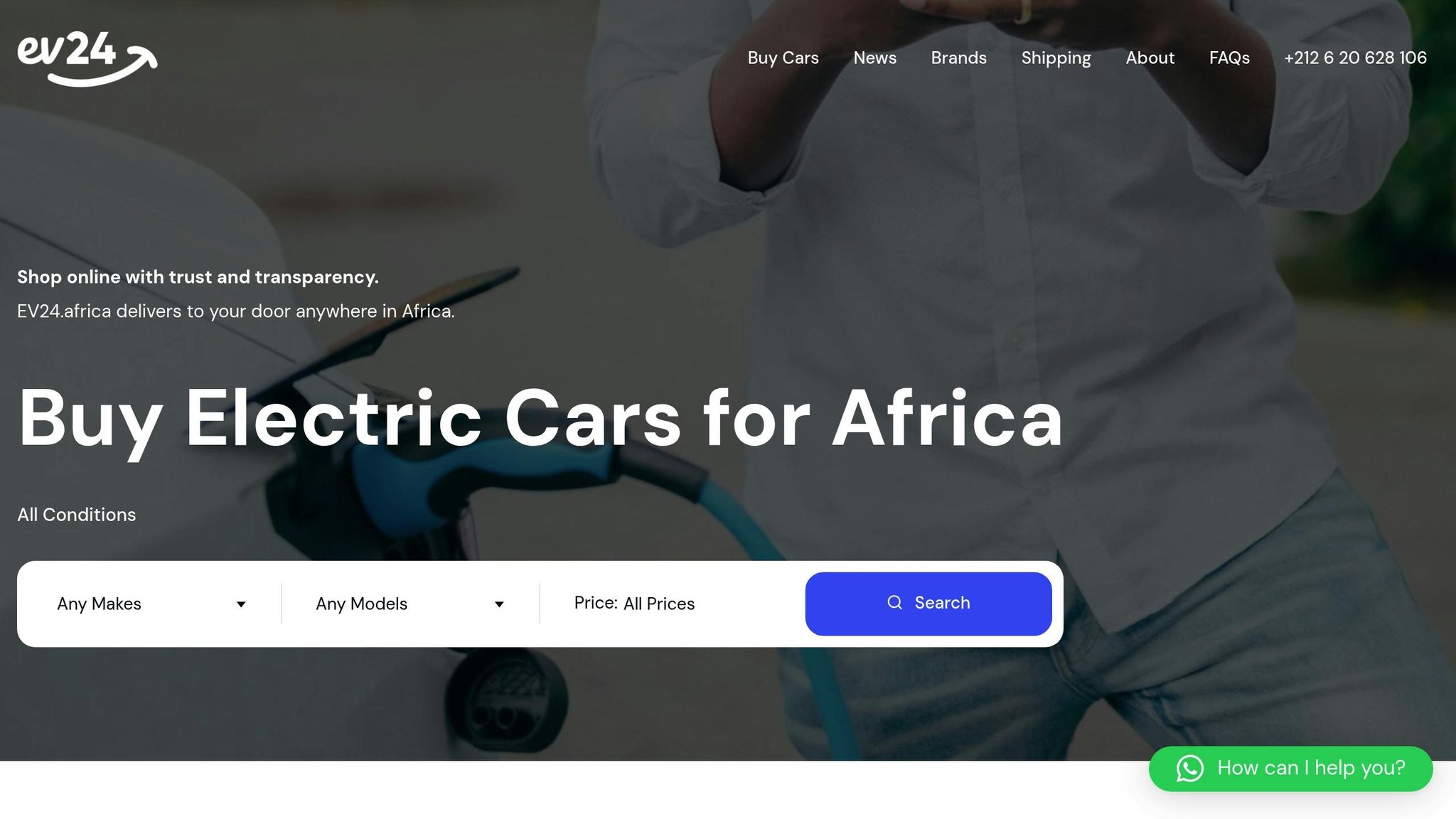
Navigating Libya’s updated 2025 EV import guidelines can feel like a maze, with complicated paperwork, shipping logistics, and customs regulations. That’s where EV24.africa steps in, simplifying the entire process – from sourcing your ideal electric vehicle to delivering it right to your doorstep. The platform takes the hassle out of importing, making it easier for Libyan buyers to get high-quality EVs without the usual stress.
With a team of over 200 professionals spread across five African countries and strong global partnerships, EV24.africa ensures smooth operations. For Libya, deliveries are managed through the Port of Tripoli, streamlining the final stage of transportation and aligning with the country’s growing EV import framework.
Wide Selection and Transparent Pricing
EV24.africa offers access to an extensive range of electric vehicles, including both brand-new models and certified pre-owned options with warranties, sourced from top international suppliers. Their partnerships bring together leading brands like Tesla, BYD, Leapmotor, Hyundai, and Toyota, all available in one convenient online marketplace.
The platform’s website is designed to help you make informed choices, featuring detailed specifications, battery range comparisons, and filtering tools. Pricing is straightforward, factoring in Libya’s specific regulations and fees, such as customs duties and any VAT exemptions. This transparency ensures you can plan your budget with confidence.
When it comes to shipping, EV24.africa provides flexible options, including Roll-on/Roll-off (RoRo) and container shipping. Buyers can also choose between port-to-port or door-to-door delivery, depending on their preferences.
Streamlined Shipping and Compliance Support
EV24.africa doesn’t just offer a wide selection of vehicles – it also handles the complexities of shipping and regulatory compliance. Meeting Libya’s strict battery safety standards and customs requirements can be challenging, but the platform addresses these issues through partnerships with specialized shipping providers. For used EVs, they ensure proper Hazmat container shipping to meet battery safety protocols.
The platform manages the entire import process under international commercial terms (Incoterms), offering Delivered Duty Paid (DDP) services. This means they handle everything from customs clearance to registration and import taxes, ensuring your vehicle fully complies with local regulations.
To keep you in the loop, EV24.africa provides real-time tracking throughout the shipping process, so you’ll always know where your vehicle is. Whether it’s sourcing, shipping, or compliance, EV24.africa takes care of the details, making EV importing a smooth and stress-free experience.
Main Points for Importing EVs into Libya
Bringing electric vehicles (EVs) into Libya in 2025 requires careful attention to financial regulations, accurate documentation, and smooth navigation of customs procedures.
First, all payments must go through banking channels approved by the Central Bank of Libya (CBL), as mandated by decree No. 42. On the bright side, Libya offers substantial savings for importers, with 100% electric vehicles exempt from VAT and customs duties.
Once financial compliance is sorted, the next step is ensuring your documentation is in order. This includes registering with Libya’s Advance Cargo Information (ACI) system, which requires shipment details to be submitted before arrival. For assistance, ACI technical support is available to guide you through the process.
Customs procedures align with international commercial terms, giving importers the option to choose between FOB (Free on Board) or DDP (Delivered Duty Paid) arrangements. While these steps may seem complex, professional guidance can make the process much easier.
For a hassle-free experience, consider working with EV24.africa. This service handles everything from CBL-compliant banking and ACI registration to customs clearance and final delivery under standard Incoterms. They ensure you stay compliant while taking full advantage of the tax exemptions available.
Libya’s government policies strongly support EV adoption, offering financial incentives to encourage imports. By adhering to banking rules, completing the necessary paperwork, and collaborating with experienced import specialists, you can simplify the process and save both time and money.
FAQs
What documents do I need to import an electric vehicle into Libya in 2025?
To bring an electric vehicle into Libya in 2025, you’ll need to prepare several important documents. These include a commercial invoice, bill of lading, import license, vehicle registration documents, and proof that the vehicle meets Libyan standards.
In some cases, you might also need a customs declaration and a certificate of origin, depending on the shipment details. It’s crucial to verify these requirements ahead of time to prevent any unnecessary delays during the process.
How will the 2025 U.S.-Libya trade tariffs impact the cost of importing electric vehicles?
2025 U.S.-Libya Trade Tariffs
Starting August 1, 2025, the United States will enforce a 30% tariff on goods imported from Libya. This policy directly impacts the cost of importing electric vehicles (EVs), making them pricier for both U.S. importers and consumers.
The increase in costs could lead to higher retail prices, potentially affecting buying decisions. If you’re planning to import EVs from Libya, it’s crucial to factor these tariffs into your budget to avoid unexpected expenses.
How can I make sure my electric vehicle’s battery meets Libya’s safety standards for shipping?
To make sure your electric vehicle’s battery meets Libya’s safety standards during shipping, here are the steps you should take:
- Use the Right Packaging: Choose UN-certified packaging specifically designed for lithium-ion batteries. This helps prevent short circuits and physical damage. Include cushioning materials and ensure the packaging is clearly labeled, such as with a "NONSPILLABLE BATTERY" tag.
- Follow Shipping Regulations: Stay updated on international shipping rules, like those outlined in the IMO and IMDG Code. These guidelines address risks such as thermal runaway and potential fire hazards. Make sure your shipment aligns with the latest updates, especially those coming into effect in 2025.
- Prepare Accurate Documentation: Have all necessary safety paperwork ready, including battery classification details and hazard labels. This will streamline customs clearance and ensure you meet regulatory requirements.
By following these steps, you can help ensure your electric vehicle’s battery is shipped safely and without complications.


